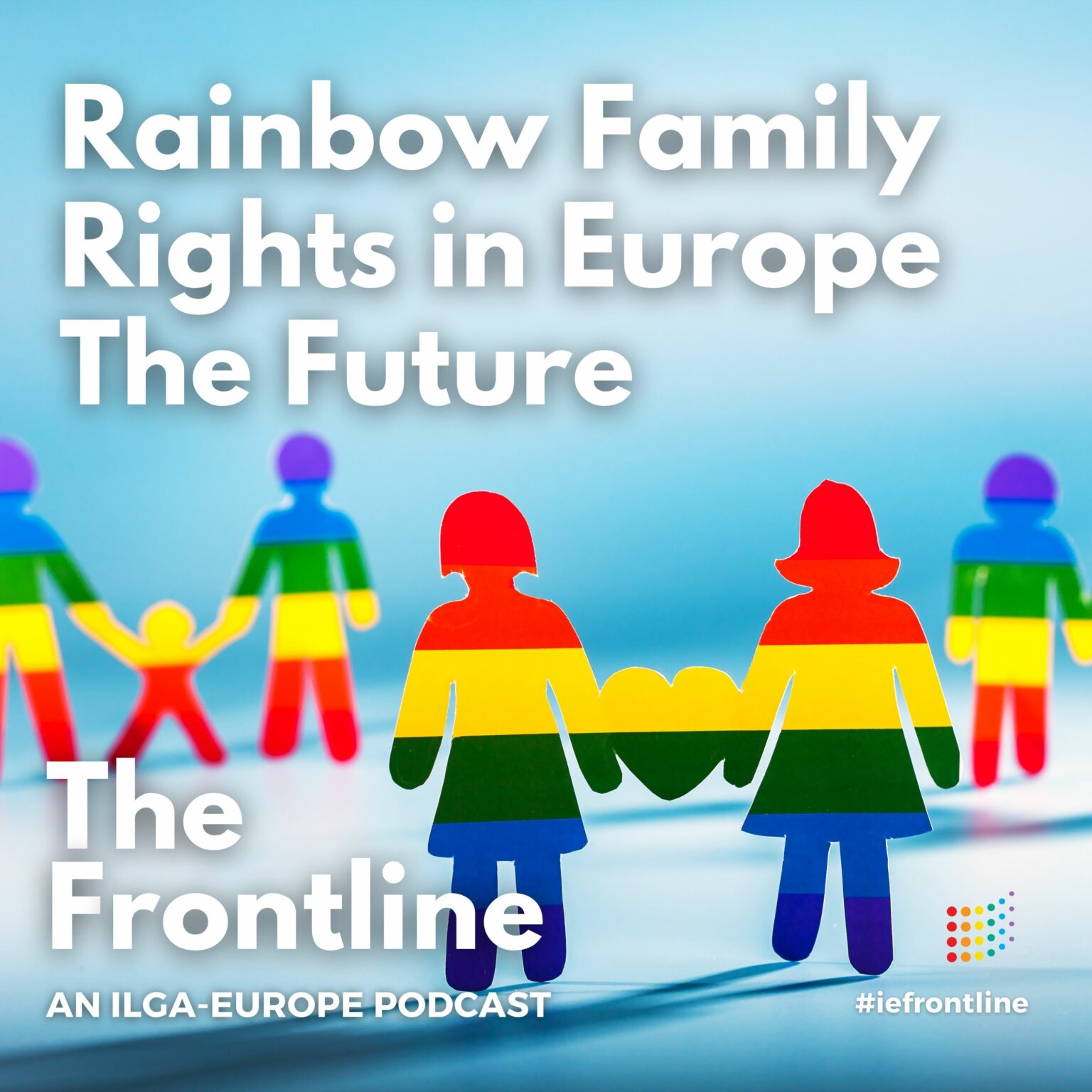Listen: Rainbow Family Rights in Europe in 2021 and Beyond

ILGA-Europe’s podcast The Frontline presents a brand-new mini-series looking at the many issues affecting LGBTI parents and their children across Europe.
Presented by ILGA-Europe, The Frontline is a podcast about LGBTI activism and lives in Europe and Central Asia. Deep-diving and analysing from a unique and informed perspective, The Frontline aims to bring you to the core of queer activism and give you an understanding on the complexities of what’s happening, why it’s happening, the wins and the losses, the challenges and commonalities, and the extraordinary ways in which the work of those on the frontlines continues in a rapidly changing world.
The latest mini-series from The Frontline explores rainbow family rights, and the lack thereof, in Europe. We look at two landkark cases being taken to the European courts, explore partnership rights in the Western Balkans and Ukraine, discuss the rights of trans parents, and evaluate the issues that are coming up beyond 2021.
Here are all the episodes:
Part 1: The Coman Case Three Years On
We meet Adrian Coman from Romania. Three years ago, Adrian and his partner Cole were successful bringing their case to the Court of Justice of the European Union, which judged that same-sex spouses are fully recognised as spouses under the EU freedom of movement directive. As a result, Adrian and Cole, who is American, should have been granted a residence permit in Romania. To this day, the judgement has not been enacted by the Romanian state, and in March 2021, the couple took their case to the European Court of Human Rights to finally get their rights recognised. We’re also joined by Arpi Avetisyan, head of litigation at ILGA-Europe, to talk about the wider implications of the latest developments in the Coman case.
Part 2: Baby Sara, Stateless Child
We meet Kalina and Jane, from Bulgaria and the UK respectively. Because their daughter Sara was born in Gibraltar, she cannot claim UK citizenship via Jane, so the couple applied to have her registered in Bulgaria. The Bulgarian authorities refused, therefore leaving Baby Sara stateless.
Kalina and Jane brought a case against the Bulgarian authorities to the EU Court of Justice, which was heard in March 2021. They join us to talk about their current situation, the case, and what it means to their family. We’re also joined by Arpi Avetisyan, Head of Litigation at ILGA-Europe, to talk about the wider implications of the case.
Part 3: The Western Balkans
We’re joined by Danijel Kalezi?, president of the Governing Board of Queer Montenegro, which helped usher in legislation for civil unions for same-sex couples, which were signed into law last year, making Montenegro the second Western Balkans country, after Croatia, to do so. Danijel is with us to talk about the journey so far in Montenegro, and the state of play for same-sex partnership rights across the Western Balkans.
Part 4: At a Crossroads in Ukraine
Several pathways for partnership rights were part of the Ukraine took in EU-Ukraine Association agreement 2014–2016. Based on it the Ukrainian government developed a human rights strategy plan 2013–2019 which included specific commitments to LGBT rights, but many elements of this strategy were not implemented, and civil partnership was dropped from it. However, post-revolution and against the backdrop of Russia’s ongoing military intervention, it is a crossroads time for LGBTI and partnership rights in the country. We’re joined by activists Olena Shevchenko, from the Kyiv-based organisation, Insight and Andriy Maymulakhin, from Nash Mir in the city of Luhansk, about the outlook for partnership rights in Ukraine.
Part 5: The Rights of Trans Parents and their Children
In March 2021, Transgender Europe (TGEU) published the report, “Stuck on the swing: experiences of trans parents with freedom of movement in the EU”, in which 18 trans parents from across Europe shared their stories and thoughts. The report found that trans parents and their families face serious barriers when it comes to moving safely and freely across the European Union. In the fifth part of our mini-series, we talk to Senior Policy Officer with TGEU, Richard Köhler, and Slovenian trans-activist, Lea Aymard, one of the parents featured in the report, about the current state of play and ways forward.
Part 6: The Future
ILGA-Europe’s advocacy director, Katrin Hugendubel and Björn Sieverding from the Network of European LGBTIQ Families explore the issues coming down the line in terms of rainbow family rights, including direct child-parent recognition from birth, equal opportunities for children to find new parents by adoption or foster care, access to ART (including funding), and multi-parenting possibilities.